Scottish Gaelic is endangered: what is being done
By Christian Vince
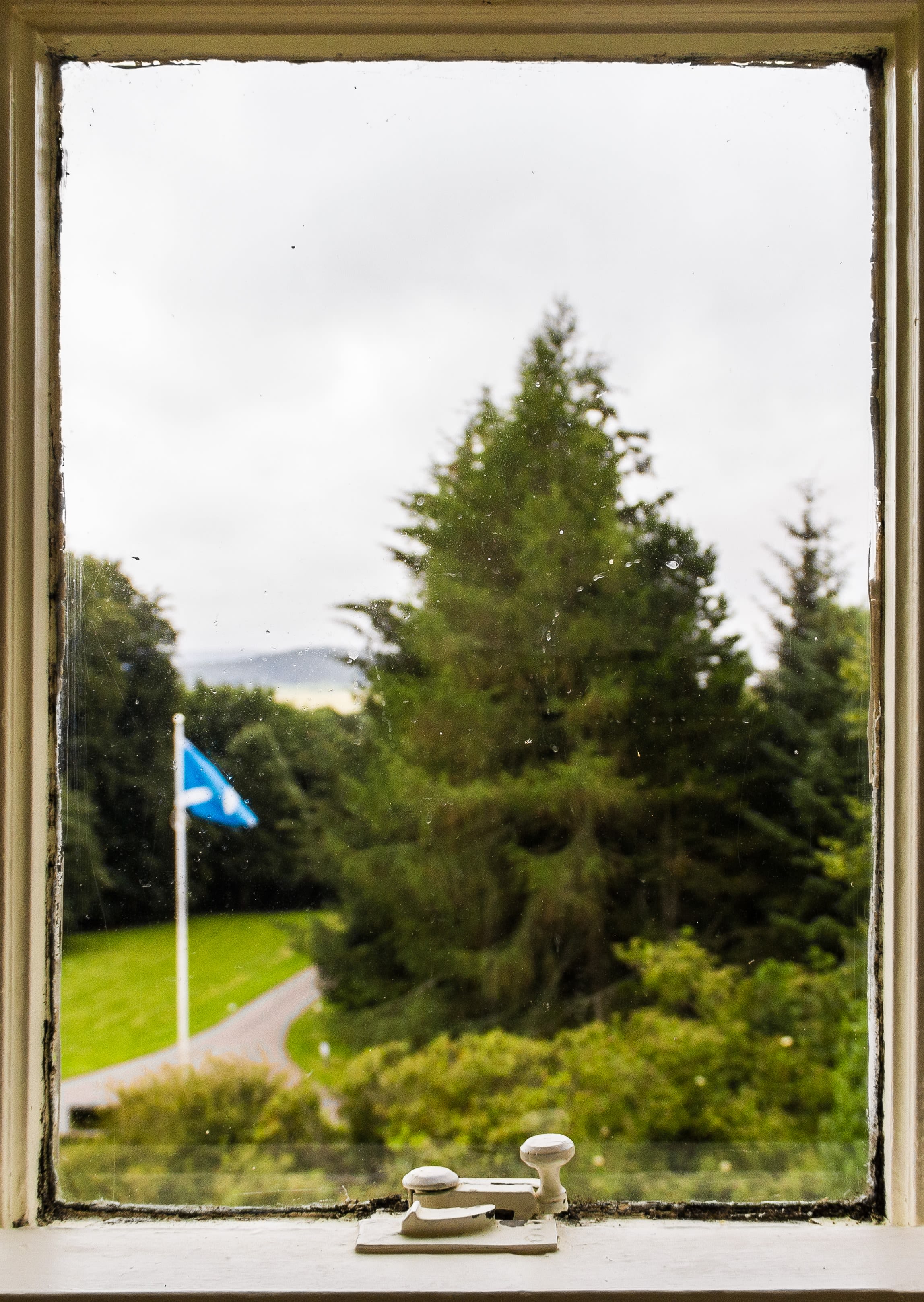
The Gaelic language is endangered and to let it slip into extinction would mean that a large part of Scottish culture will disappear.
Outside of the areas in which Gaelic is spoken daily, many people have lived in complete oblivion to the fact that there exists a number of people speaking a different native language in communities just 400 miles from London. Gaelic learner Jo Nelson described the language as being 'tied up with identity for many', making the decline of the language a bleak prospect.
History and current statistics

What once was a language brought over by settlers from Ireland some 1500 years ago, quickly became the language of Scotland and the Scottish court. Gaelic became the main language of the Kingdom of Alba and only began to drop off in the 18th century. With the rise in popularity of English and its association with barbarism, Gaelic began to lose traction. The numbers of those speaking Gaelic in mainland Scotland fell dramatically following the union of England and Scotland in 1707.
The Highland Clearances spanning over 100 years from the mid 1700s also caused the number of Gaelic speakers to haemorrhage. The Clearances saw a large number of tenants forcibly evicted from their homes in the Highlands and Islands to make land for sheep pastoralism.
Now, just 58,000 people in Scotland can speak Gaelic, according to the 2011 Census, equating to just over 1% of the population. Data from the 2022 census is due out in the next year.
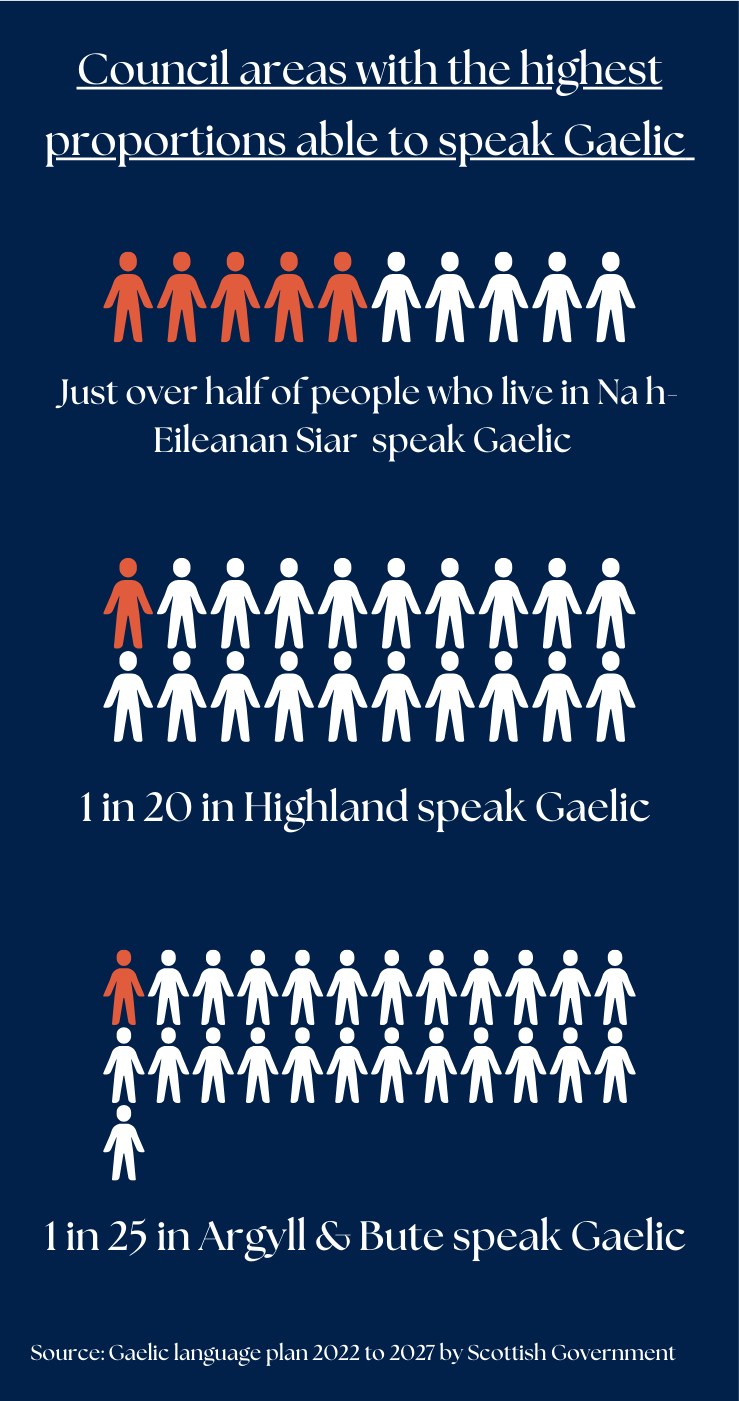
Celtic language distribution
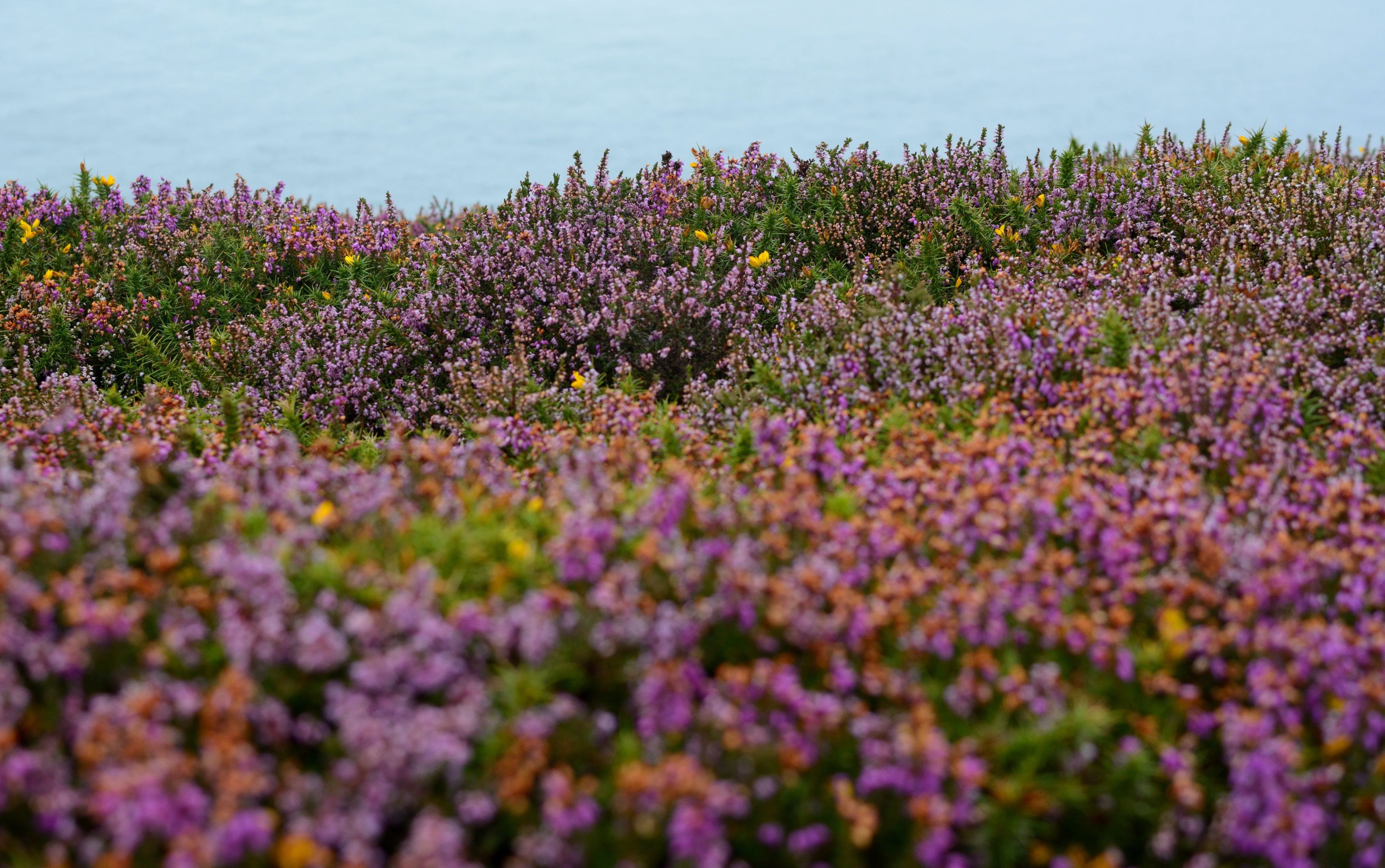
Scottish Gaelic is one of six Celtic languages, with some spoken in the British Isles. The others are Scots, Irish, Manx, Cornish, and Breton, all of which are being spoken in some capacity today.
According to data provided by Celtic Titles, Scottish Gaelic is spoken by a smaller proportion of the country's population than Irish, Breton and Welsh.
“I don’t think that I am going to singlehandedly save Gaelic, but I think that it is such a precious thing that we need to help preserve," said learner Jo Nelson.

Londoner Jo Nelson, 54, began her Gaelic journey during the pandemic spurred on by pure curiosity and quickly fell for the poetic nature of the language. With no direct connection to Scotland nor its culture, Nelson’s decision to learn Gaelic comes from her plans to relocate there and a general love of linguistics. Having completed a degree in Russian several years ago, picking up a few other European languages since then, Gaelic was the hardest to learn, Nelson admitted.
However, with Gaelic’s long-standing association with poetry and song, Nelson found ways to improve her language skills without shackling herself to the desk to stare at a grammar book. She spoke fondly of her visits to the Royal National Mòd, an annual festival in celebration of Scotland’s linguistic and cultural heritage where Gaelic songs, book recitals and instruments can be heard. Nelson described the event in words that can only be described as biblical, as she was captivated by cultural merriment.
“Once you see it in the community, you realise it is not just an academic exercise, it’s a real language and its alive and relevant to the people who speak it,” she said.
With the pool of Gaelic speakers shrinking year on year, Nelson thinks it is important that the central Westminster government should do more to protect it. Nelson complained of the lack of awareness of vital parts of the UK’s cultural fabric, particularly English people.
“I don’t think that I am going to singlehandedly save it, but I think that it is such a precious thing that we need to help preserve,” she said.
With the language being closely ‘tied up with identity and steeped in community and relationships’, according to Nelson, to lose such a thing would be to forget a substantial proportion of personal histories.
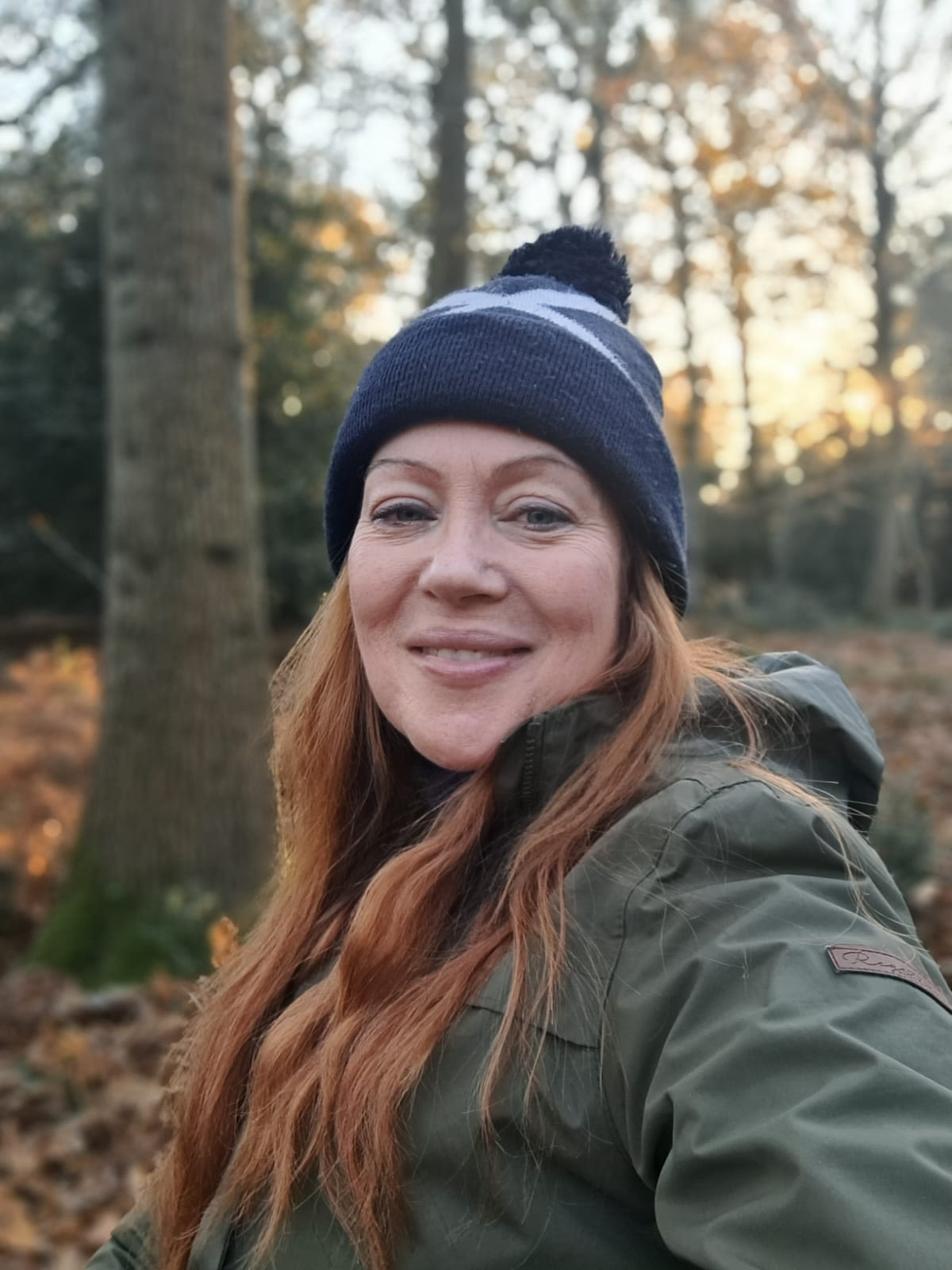
Jo Nelson
Jo Nelson
“I started to feel slightly shame-faced really. Here I was surrounded by books from my own country that I couldn’t understand,”said Colin West.

Glasgow-born lawyer Colin West has lived in England for more than 20 years and picked up Gaelic after a trip to a book festival in Edinburgh.
“I started to feel slightly shame faced really. Here I was surrounded by books from my own country that I couldn’t understand,” West said.
It was with this feeling of cultural detachment that West picked up a Gaelic for Beginners book at the festival and got to work. At the start of his journey in 2008, there were very few resources for those starting from scratch. West chose full immersion by making the pilgrimage to the Isle of Skye for a week-long language course. West now goes every year.
Growing up in Glasgow, Gaelic was rarely heard nor seen according to West.
“I didn’t live in an area where you could hear it being spoke on the streets. You did come across it from time to time, watching Gaelic television shows and seeing bilingual signs,” he said.
West gives his advice on how to develop your Gaelic skills
West gives his advice on how to develop your Gaelic skills
According to the Scottish Social Attitudes Survey 2021, the proportion of adults who have seen Gaelic signage has doubled since 2012. Furthermore, seven in 10 adults have heard, read or seen Gaelic in the media within the last year. With the rise of social media and digital media consumption, learning Gaelic has become easier and passion for language and culture can be more widely distributed and enjoyed.
“You can find people to chat away with on Twitter in Gaelic so I find myself using the language almost every day in some form,” West said.
The future of Gaelic

Since 2008, BBC Alba has been funded by the UK and Scottish Government to provide Gaelic speakers and learners the opportunity to consume media in Gaelic.
The Scottish Parliament has also laid out its annual Gaelic language plan 2023 to 2028 proposal, establishing goals for the maintenance of the language and the benefits of supporting its growth and development. For example, the report pledged to increase bilingual signage and reform education to be more inclusive of Gaelic speakers. Once approved by Bòrd na Gàidhlig, the public body responsible for promoting Gaelic in Scotland, work will begin with striving towards the targets set.
However, some have called on the current Scottish First Minister, Humza Yousaf, to appoint a Minister for Scottish languages as many believe they are not being appropriately represented in Holyrood. With the link between Gaelic and Scottish heritage and culture, many fear that nurturing the regrowth of this language is not on the list of priorities for the Government.
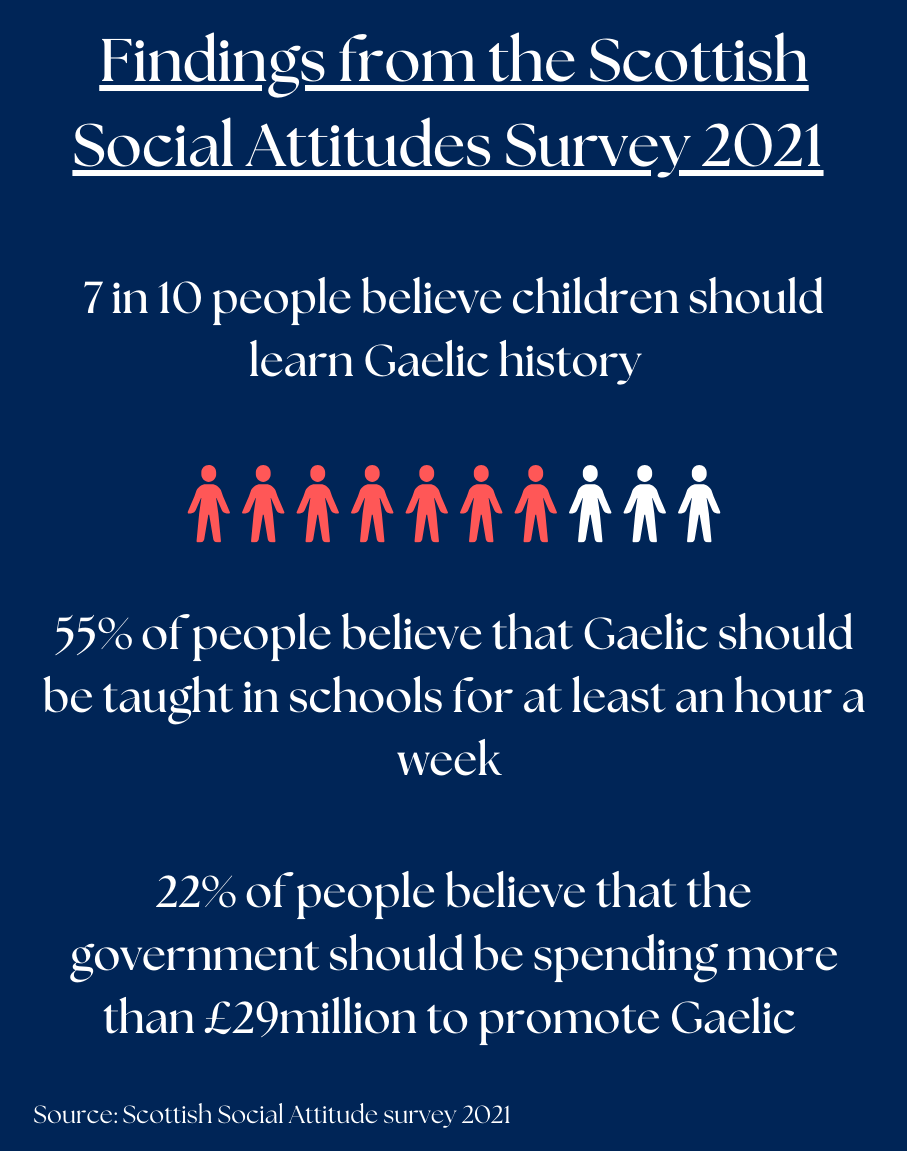
Source: Scotland's 2011 Census
Gaelic resources

Coffee Break Languages provides short lessons for you to practise speaking Gaelic.
Nelson and West started their Gaelic language journey in different ways, trawling through grammar books and immersing themselves in Gaelic culture. There is a wide variety of resources available online, here are a few:
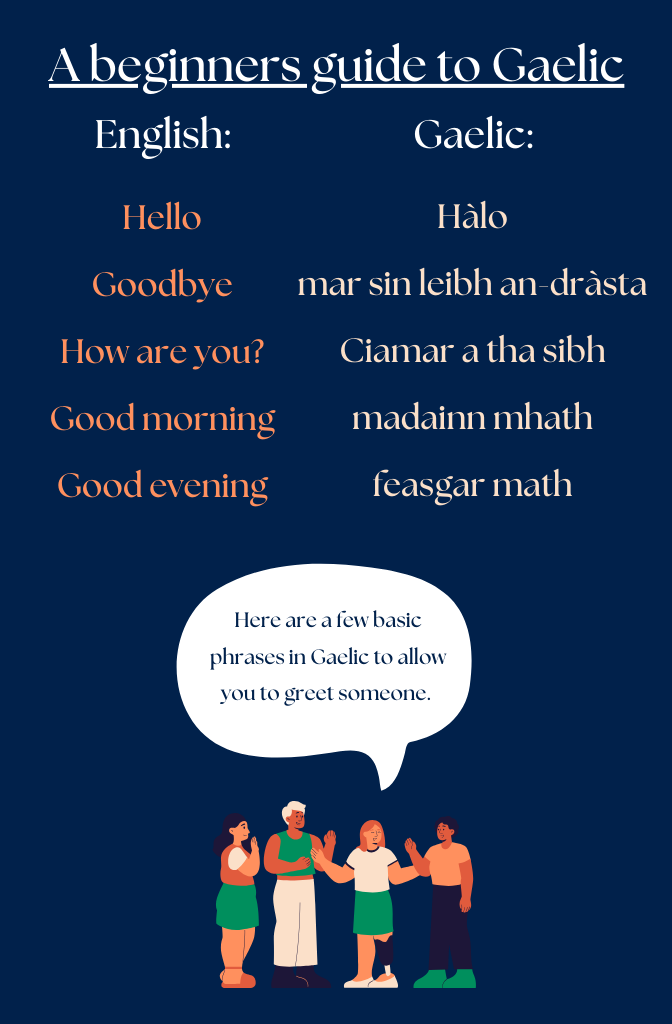
Here are a few phrases to get you started!
Here are a few phrases to get you started!
Quiz
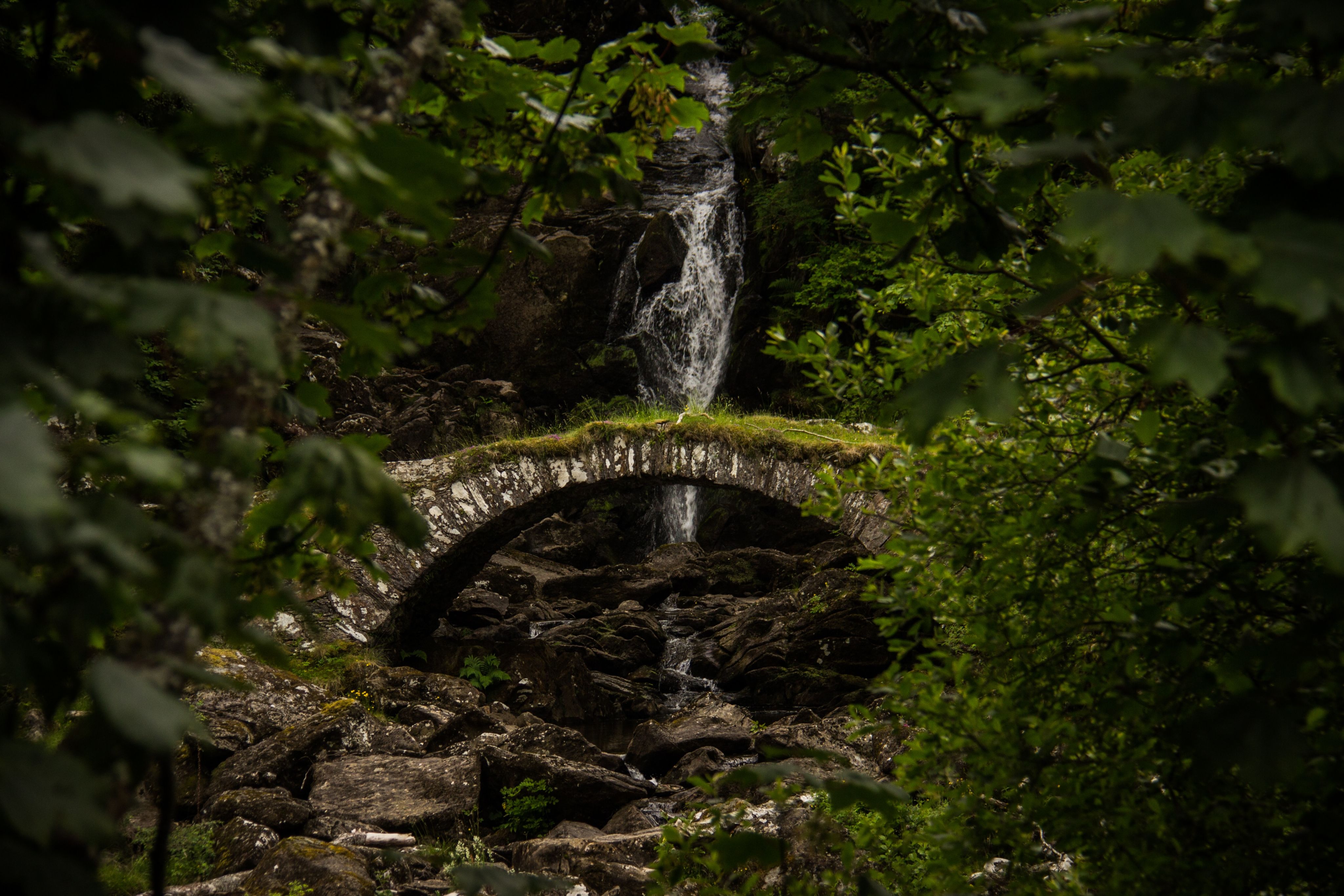
Take the quiz and see what you have learnt!
